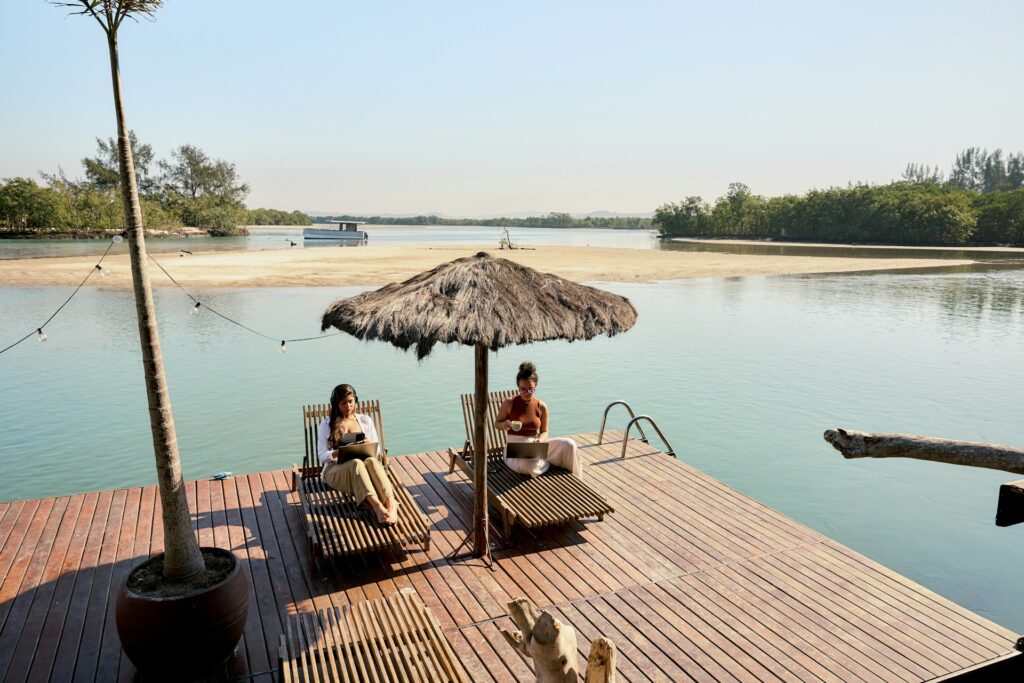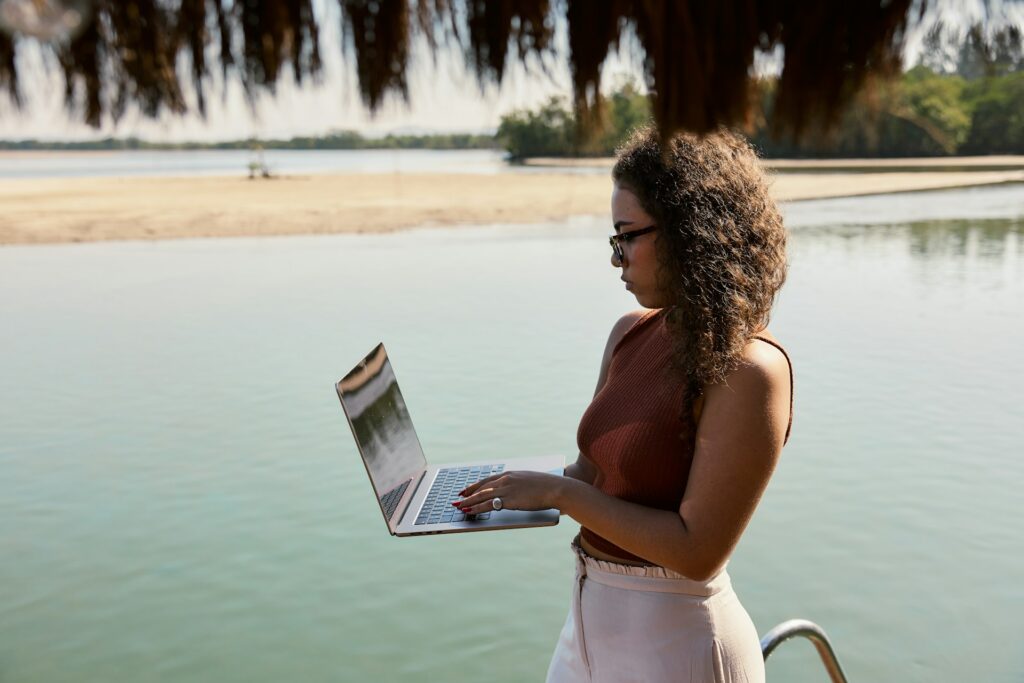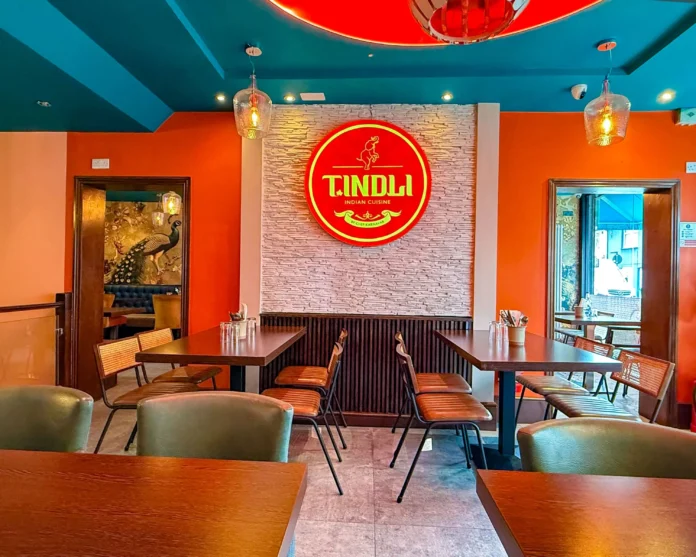That idyllic beachfront café in Bali might offer the perfect Instagram backdrop for your workday, but it’s also a potential goldmine for cybercriminals. As more of us swap office chairs for airline seats, protecting our digital workspace has become as crucial as packing a universal adapter.
Picture this: you’re finalising a crucial client project from a gorgeous rooftop café in Chiang Mai. The WiFi’s free, the coffee’s sublime, and you’re living the dream. But that dream can quickly turn into a nightmare if your client’s data ends up compromised because of an unsecured network. It’s a scenario that plays out more often than you’d think – according to recent studies, digital nomads are three times more likely to experience data breaches than office-based workers, largely due to the nature of constantly changing work environments and reliance on public WiFi networks.
Essential Cybersecurity Kit For The Modern Nomad
The beauty of the digital nomad lifestyle lies in its simplicity – a laptop and good WiFi connection can create an office anywhere in the world. However, that simplicity needs to be balanced with robust security measures. Think of your cybersecurity toolkit as your digital travel insurance; you hope you’ll never need it, but you’ll be grateful to have it when things go wrong. Just as you wouldn’t travel without insurance or your passport, these tools should be non-negotiable components of your mobile office:
Your Digital Travel Insurance
- A reliable VPN (your first line of defence against dodgy WiFi)
- Secure password manager (because Post-it notes don’t travel well)
- Two-factor authentication for all crucial accounts
- Encrypted cloud storage for client files
- Regular backup solutions that work offline

Smart Working Habits For Safer Adventures
Security isn’t just about having the right tools – it’s about developing habits that protect your digital workspace wherever you roam. The challenge lies in maintaining these habits when you’re working from a different location every week, or even every day. The key is to establish routines that become second nature, regardless of whether you’re in a high-end co-working space in Singapore or a beach shack in Goa.
On The Ground Rules
- Never access banking sites on public WiFi without VPN protection
- Take control of your data by regularly clearing browser caches and cookies, and removing personal information from Google, if necessary
- Keep work and personal browsing separate (preferably on different browsers)
- Use mobile hotspot for sensitive work when café WiFi feels sketchy


The Co-Working Advantage
The allure of working from picturesque cafés is undeniable, but there’s a strong case to be made for choosing established co-working spaces, especially when handling sensitive client work. These spaces have evolved far beyond just providing desks and WiFi – they’re professional environments designed with remote workers in mind, offering layers of security that no café can match. The investment in a co-working membership often pays for itself in terms of enhanced security and productivity:
Whilst beachfront cafés are tempting, consider these safer alternatives:
- Established co-working spaces with enterprise-grade security
- Private meeting rooms for confidential client calls
- Secure, dedicated WiFi networks
- Built-in community of fellow digital professionals
When Paradise Gets Problematic
Even with the best preventive measures, security incidents can still occur. The key to managing these situations lies in preparation and swift action. Think of it like travel insurance – you hope you’ll never need it, but having a clear plan in place makes all the difference when things go wrong. The most successful digital nomads aren’t those who never face problems; they’re the ones who know exactly what to do when issues – both in terms of data and finances – arise.
Creating an incident response plan might seem overly cautious, but it’s a crucial part of professional remote work. This isn’t about being paranoid – it’s about being prepared. Consider these your emergency protocols:
- Immediate password changes across all platforms
- Client notification protocols (have these ready before you need them)
- Local tech support contacts in your frequent destinations
- Backup work devices ready to deploy



The Professional Edge Of Security
In today’s digital landscape, strong security practices aren’t just about protection – they’re a valuable selling point. Clients are increasingly aware of cyber risks, and demonstrating that you take their data security seriously, even while working remotely, can set you apart from the competition. This professional approach to security needs to be comprehensive and visible to clients without being intrusive to your workflow.
Consider this your professional security framework:
- Regular security audits of your digital workspace
- Professional-grade encryption for client communications
- Clear protocols for handling sensitive information
- Regular updates to all security software
The Bottom Line
The digital nomad lifestyle offers unprecedented freedom, but that freedom requires responsibility. Investing in proper cybersecurity isn’t just about protecting yourself—it’s about ensuring you can deliver the professional service your clients expect, whether you’re working from London or Laos.
Remember: true location independence means being able to work confidently and securely from anywhere. After all, what’s the point of that perfect beach office if you’re too worried about security to enjoy the view? By implementing these security measures and maintaining vigilant practices, you can focus on what matters most – delivering great work while exploring the world.





